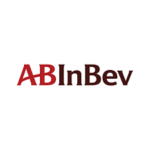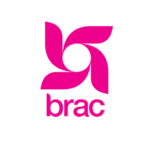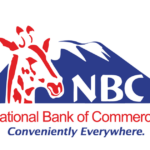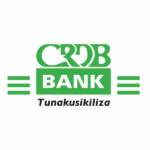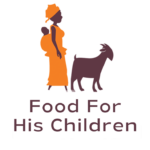
Call For Consultant at Rikolto
CALL FOR CONSULTANT -FOOD ENVIRONMENT ANALYSIS AND MAPPING OF COMMODITY PLATFORMS
Deadline: April 28, 2025
Terms of Reference for a consultancy on Food environment context Analysis and Mapping of Commodity sector Platforms in Dodoma, Dar es Salaam, Morogoro, Iringa and Mbeya regions.
Background:
Rikolto is an international NGO with more than 50 years’ experience in partnering with farmer organizations and food chain stakeholders across Africa, Asia, Europe and Latin America. Our work is structured around three global programs: our international Rice, Cocoa & Coffee and Good Food 4 Cities programs. Our mission is A sustainable income for farmers and nutritious, affordable food for everyone.
through fostering trust and trade among the food industry, governments, research institutions, financial bodies, and farmers’ organizations, focusing on the pivotal question: ‘What will we eat tomorrow?’ Rikolto’ s global strategy is directed towards structural changes in the agri-food system and upscaling of well-functioning practices and policies that unlock the farming potential of a critical mass of small holder farmers. Clear structural change/up-scaling agendas are agreed upon for which specific strategies and actions are developed. This is followed by design of concrete interventions in pilot chains to experiment, learn and build evidence to influence the agreed changes. The potential of technology to address financial needs along the value chain has yet to be fully realized.
Among of Rikolto global Programmes Good Food for Cities programme which catalyze collective action among local food system actors to make urban food environments and food supply chains more conducive to healthy, sustainable and nutritious diets for all citizens as part of resilient and inclusive city region food systems. Under this programme, Rikolto in East Africa has secured a five-year (2024-2028) funding from Norad funded through IDH namely Grow Together programme Leveraging markets and data for food security and thriving communities in Tanzania and Ethiopia. The program vision is to contribute to transforming local food markets and improving food security and local economies by increasing the incomes of small-scale food producers and scaling operations of food SMEs to become large and reliable food companies in Africa with Ethiopia and Tanzania being target countries.
Urban centers drive dietary consumption and food trade as urban households spend more on food. The population of Africa is expected to double by 2050, with a considerable increase in urban population. Increased commercialization and trade will be essential to improve the year-round availability of affordable, diverse, and nutritious foods for food and nutrition security. By commercially including small-scale food producers, women, and youth, food value chains create opportunities for better household incomes, impacting food and nutrition security. This reality informs Rikolto work on value chain transformation and living income to support continental efforts on food systems transformation for food and nutrition security. Also, African food value chains have adequate diversity to meet the food, and nutrition needs of the continent. However, inefficiencies in commercial investment, production, aggregation, processing, distribution, and marketing limit the food systems. Small-sized family farms dominate crop and livestock production. On farmer side, yields remain low as smallholder farmers (SHF) lack access to knowledge and production resources (land, inputs, technology, infrastructure, financing) to improve and diversify production. And where production is beyond subsistence, farmers lack access to reliable and premium markets to earn a living income. SMEs have limited access to commercial finance, knowledge and struggle to access expertise and business development services to improve their value chain operations.
The project is focused on the following value chains; maize, rice, sunflower and common beans. The geographical coverage for this project is Dar es salaam, Morogoro, Dodoma, Iringa and Mbeya regions.
A) Tanzania food Environment and Rationale of Food environment Context analysis
The food environment encompasses the physical, economic, political, and socio-cultural factors that influence the availability, accessibility, affordability, and quality of food. In Tanzania, this environment is shaped by various elements, including urbanization and population growth, agricultural practices, infrastructure development, and government policies. Understanding the food environment and food chains in both urban and rural areas such is essential for enhancing food security and nutrition in Tanzania. We therefore plan to conduct food context analysis for a better understanding of food flows and its challenges.
The Growing together Program is at its design stage, need to be informed by food environment context analysis. Therefore, it is crucial to thoroughly understand the operating environment and we are seeking a consultant for a short-term assignment spanning from May to June 2025 (30 working days only) tasked with conducting a comprehensive food environment context analysis in Tanzania.
The primary objective of this assignment is to gain a deeper understanding of the urban food environment in targeted cities and municipalities of Dodoma, Iringa, Mbeya, Morogoro and Dar Es salaam specifically focusing on key issues, market inefficiencies, food distribution models and other food innovations, farmer linkages to market and identifying potential partners/stakeholders. This analysis aims to inform the design of urban food system stakeholder engagement modalities in achieving the goal of providing healthy, sustainable, and nutritious food to mainstream consumers in Dar es Salaam, Dodoma, Mbeya, Iringa and Morogoro.
Specific Tasks: Food environment Context analysis (18 working days)
- Conduct an extensive review of existing literature on the food environment and rural/urban food chains in Dar es Salaam, Dodoma, Mbeya, Iringa and Morogoro
- Conduct comprehensive assessment on availability, accessibility, affordability, acceptability of food in the target cities and municipalities of Dar es salaam, Iringa, Morogoro, Mbeya and Dodoma
- Perform a comparative analysis of other cities that share links with the target cities
- Map and profile key potential partners from Dar es Salaam, Mbeya, Dodoma focusing on large food companies, SMEs and MSMEs that offer markets and services to smallholder farmers.
- Understand and present different food business models by food companies in target cities
- Conduct analysis of food flow from production, transportation, marketing and final distribution points in the target cities.
- Present a draft report for the context analysis for review by Rikolto programme team which include key recommendations focusing on how to ensure food availability, accessibility, affordability and food distribution models to be used and
- Present a final report to wider stakeholders and be approved by Rikolto programme team.
- B) Conducting Mapping and analysis of existing Commodity Platforms (12 working days)
To achieve this shared vision and understanding, it is essential to have a platform where sector stakeholders can meet, discuss, and make joint decisions to address specific sector challenges. Through the Growing Together project, we aim to build and strengthen these sector platforms to improve sector governance. Therefore, the consultant needs to do the following:
Specific Task: Mapping sector Platforms
- Identify existing commodity platforms in the country with a focus on maize, sunflower, rice and common beans to improve sector governance and coordination
- Prepare a profile of all commodity platforms, conduct an assessment using the Rikolto MSP Toolbox to evaluate the status of the platforms and highlight their functionality and relevance in transforming the food system and value chain.
- Use the designated Rikolto MSP tool to conduct mapping and stakeholder analysis for maize, rice, sunflower, and common beans linked to consumers in three cities; Dodoma, Dares Salaam and Mbeya.
- Using the Rikolto designated MSP toolbox, conduct a screening of commodity platforms and provide recommendations on how they can be strengthened.
Qualifications and Experience:
We seek a qualified consultant, preferably an expert in Food Systems or related fields, with extensive experience in Africa’s food systems, particularly in Tanzania. The consultant should possess strong analytical and writing skills, capable of delivering high-quality outputs in English.
Call For Consultant at Rikolto
Mode of Application
Qualified firms/candidates are invited to submit their Technical and Financial proposal which describe the methodology to be used in undertaking the assignment, Steps to be followed in conducting the assignment, the quality of the team to be used in conducting the assignment and the proposed Budget to complete the assignment. Submit your complete application via email eastafrica.recruitment@rikolto.org by April 28, 2025. (subject: Food Environment & Platforms Consultancy).
For more information, visit here
The post Call For Consultant at Rikolto on .

